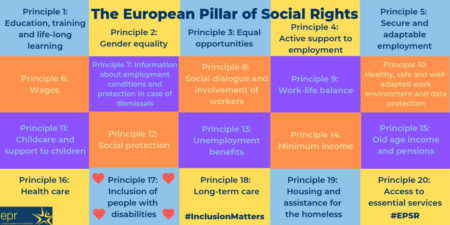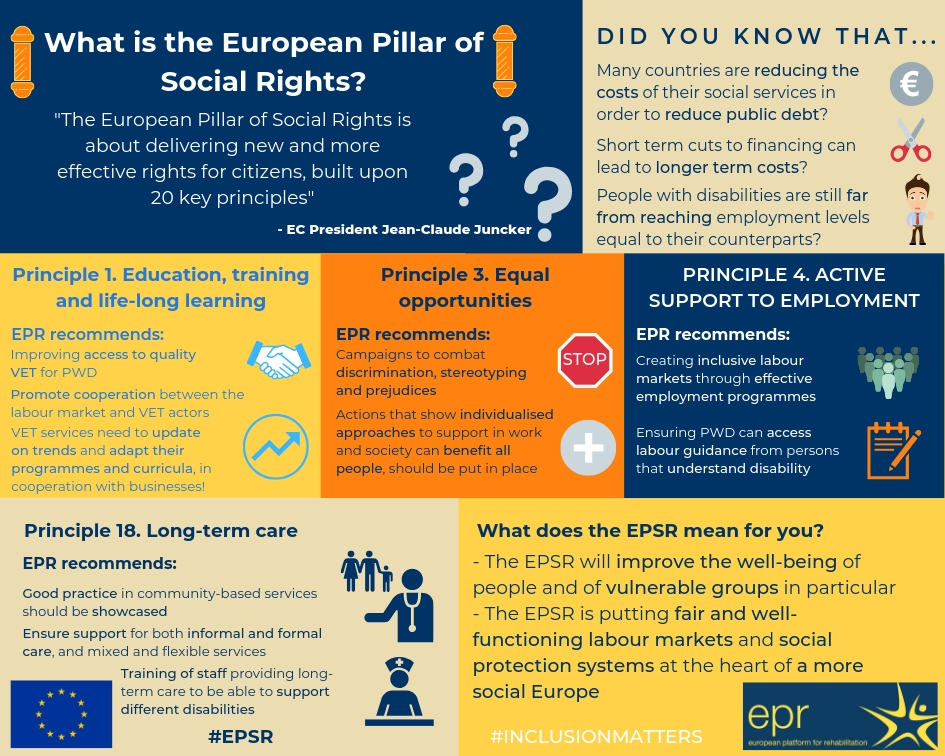 The European Pillar of Social Rights (EPSR) is an initiative launched by the European Commission with very ambitious aims; to bring back the social dimension of the EU, rebalance economic policies with social considerations, reconnect with European citizens, while at the same time addressing key issues related to changes in the world of work and society more generally, promoting higher social standards.
The European Pillar of Social Rights (EPSR) is an initiative launched by the European Commission with very ambitious aims; to bring back the social dimension of the EU, rebalance economic policies with social considerations, reconnect with European citizens, while at the same time addressing key issues related to changes in the world of work and society more generally, promoting higher social standards.
The Pillar does not give the European Union more power or competences, but aims to be a tool to promote social rights with joint collaboration and responsibility of the European institutions together with Member States, civil society, social actors and social partners. All EU countries agreed to implement the 20 principles in November 2017.
The European Commission has also developed an Action Plan for the Pillar, which sets out the concrete actions to be taken to implement the principles of the pillar. The EPSR Action Plan also provides three 2030 headline targets to which Member States and partners committed in May 2021 during the Social Summit in Porto. The three social targets address key challenges related to employment, skills development and poverty reduction:

Source: European Commission
More information about the Pillar and EPR recommendations:
:: What is the EPSR? Short summary of recommendations by EPR
:: The European Pillar of Social Rights: 20 principles in one image
:: Public consultation on the European Pillar of Social Rights – EPR Response 2016




 This website received support from the EPR framework partnership agreement with the European Commission, DG Employment, Social Affairs and Inclusion for 2018-2022 from the EU Programme for Employment and Social Innovation (EaSI). For further information please consult:
This website received support from the EPR framework partnership agreement with the European Commission, DG Employment, Social Affairs and Inclusion for 2018-2022 from the EU Programme for Employment and Social Innovation (EaSI). For further information please consult: